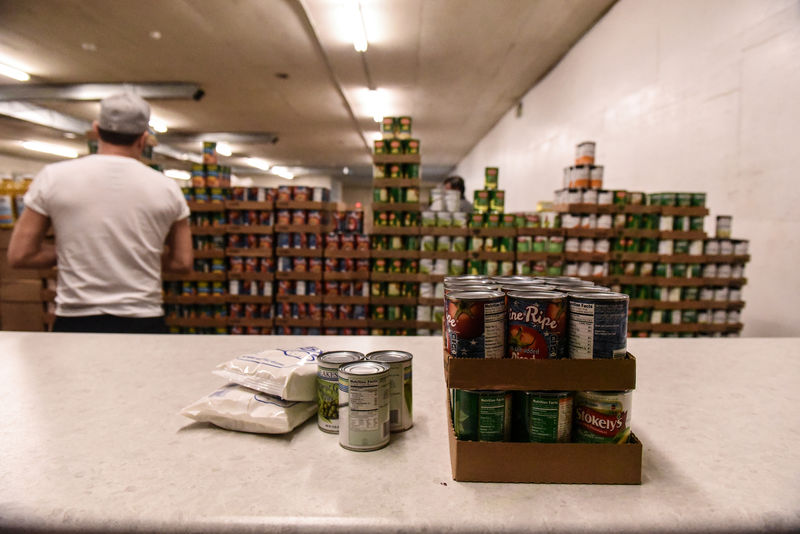By Tom Polansek and Humeyra Pamuk
CHICAGO/WASHINGTON (Reuters) - The Trump administration on Tuesday proposed a rule to tighten food stamp eligibility that would cut about 3.1 million people from the program, U.S. Department of Agriculture (USDA) officials said.
The administration billed the move as a way to save money and help eliminate what it sees as widespread abuse of the program, but Democrats and advocacy groups criticized it as an attack on the nation's poorest.
"This rule would take food away from families, prevent children from getting school meals, and make it harder for states to administer food assistance," said Democratic Senator Debbie Stabenow, ranking member of the Senate Committee on Agriculture, Nutrition and Forestry.
Currently, 43 U.S. states allow residents to automatically become eligible for food stamps through the Supplemental Nutrition Assistance Program, or SNAP, if they receive benefits from another federal program known as Temporary Assistance for Needy Families, or TANF, according to the USDA.
The agency wants to change that by requiring people who receive TANF benefits to pass a review of their income and assets to determine whether they are also eligible for free food from SNAP, officials said.
If enacted, the rule would save the federal government about $2.5 billion a year by removing 3.1 million people from SNAP, according to the USDA.
President Donald Trump has long argued that many Americans using SNAP do not need it given the strong economy and low unemployment, and should be removed as a way to save taxpayers as much as $15 billion.
"Some states are taking advantage of loopholes that allow people to receive the SNAP benefits who would otherwise not qualify and for which they are not entitled," USDA Secretary Sonny Perdue told reporters on a conference call on Monday.
SNAP provides free food to some 40 million Americans, or about 12% of the total U.S. population.
A Trump-backed effort to pass new restrictions through the Farm Bill was blocked by Congress last year, following a months-long, partisan debate.
The USDA does not need congressional approval, however, to stop states from automatically allowing recipients of TANF benefits to become eligible for SNAP, said Brandon Lipps, a USDA acting deputy undersecretary.
Current rules allow people to access SNAP benefits worth thousands of dollars for two years without going through robust eligibility reviews, he told reporters on the call.
"Unfortunately, automatic eligibility has expanded to allow even millionaires and others who simply receive a TANF-funded brochure to become eligible for SNAP when they clearly don't need it," Lipps said.
The liberal-leaning Center For American Progress advocacy group said the proposal would hurt the poor "by forcing states to take food assistance away from those with even modest savings of a few thousand dollars," and raise administrative costs for states.
The move could also potentially hurt discount retailers such as Dollar Tree (O:DLTR) and Dollar General (N:DG) which have blamed weaker traffic on reduced food stamp coverage in the past. Dollar General shares were down 1.6% while Dollar Tree shares were down 2.3% on Tuesday morning.
The USDA will accept public comment on the proposed rule change.

The Congressional Budget Office (CBO) in December estimated the rule could save the federal government $8.1 billion from 2019 to 2028, lower than the USDA's estimate. In 2016, the CBO said there were concerns the move would eliminate benefits for households in difficult financial situations and increase the complexity and time needed to process SNAP applications.